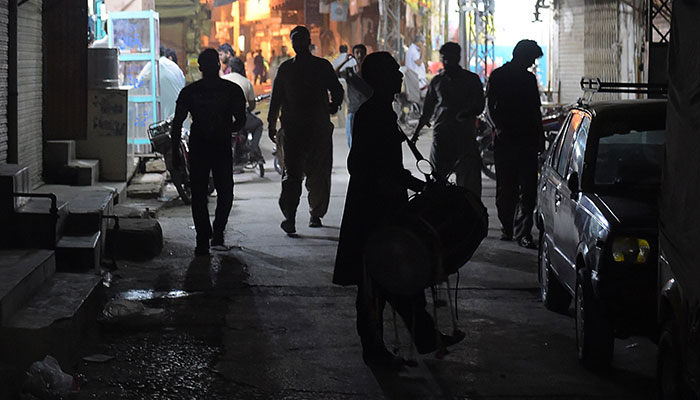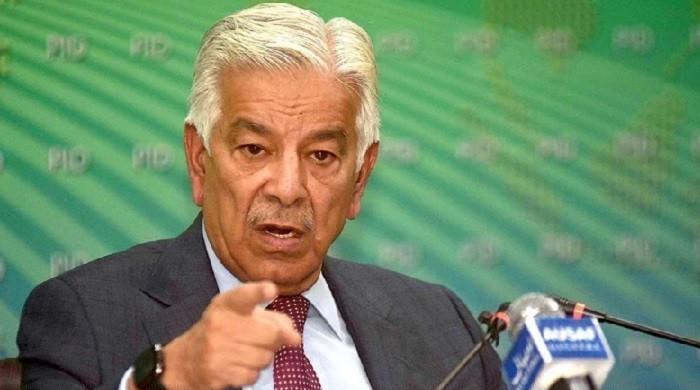Drum beating—the fading Ramazan tradition
Replacing the dhol with an empty cooking oil tin canister, which has been done deliberately due to its shrill sound, Ahmed rides through the streets waking up the residents for sehri
June 10, 2018

KARACHI: In times when people tend to rely more on mobile phone alarm clocks to help them start their day, the centuries-old tradition of 'dhol wala' (drum beater) waking up people for sehri in Ramazan remains alive in certain areas of the country.
Every year, like clockwork the dhol wala rides through the city streets, banging his drums and waking up people for the pre-dawn meal.
However, the popular dhol wala, that was once an integral part of Ramazan, is now fast becoming a part of history.
One such man who is still trying to keep the dying art of waking residents in the time of alarms and cell phones is Pervez Ahmed.
Replacing the dhol with an empty cooking oil tin canister, which has been done deliberately due to its shrill sound, Ahmed rides through the streets of Karachi’s Gulistan-e-Jauhar waking up the residents for sehri.
Dying tradition
According to Ahmed, there was a time when most people would wake up to the sound of loud drumbeats in the wee hours, heralding the start of sehri time during Ramazan. However, with the modern technology, this tradition is slowly and steadily dying down.
The veteran of 20 years believes that people no longer feel the need to have someone bang the drums in the morning to wake them up.
“They have alarms and phones and waking up with the sound of drums is no longer important,” he says.
The conditions continue to be dire as there is bare minimum monetary compensation.
"People pay whatever they can. Some pay Rs50, while some pay Rs100 or even Rs200. Sometimes people even pay up to Rs500 or Rs1,000," Ahmed says. "Other time people just turn us away."
However, Ahmed is not ready to give up so soon. "I will keep playing as long as I can. When the time comes and we are no longer needed then we will move onto something different", he adds.
Opposing opinions
While some people revel in waking up to beating of the drums, others are opposed to the idea.
“For me, this [tradion] is an integral part of Ramazan," says Iqbal, a resident of Gulistan-e-Jauhar. "There is something oddly satisfying about hearing the drums beating at 3am and waking up to it", he remarks.
Similary, 86-year-old Siddiqui, who has been living in the same locality for the past 30 years, shared: "For us old timers the dhol wala reminds us of simpler times.”
However, not everyone takes kindly to the man who shows up one month a year, to wake them up. Some don't even acknowledge it or remember until he shows up on the last day of Ramazan and gets paid.
Afzal, a 30-year-old resident of Gulshan-e-Iqbal, believes that there is no longer a need for ‘outdated traditions’ such as the one practised by a dhol wala.
"In a time of alarms and cell phones I believe there is no need for a dhol wala to show up," he says.
‘Failed musicians’
On the other hand, famed tabla player Aashiq Ali believes that dhol walay and the playing of dhol during Ramazan is not a part of the culture.
According to him, the dhol walay are nothing more than "failed musicians".
"To make it to the top requires a special something. It takes years and years of practice to make it somewhere and even then, you still get nowhere near the greats," Ali says. He believes that those who turn to this line of profession, are doing what any person does to feed himself.
"This has never been a part of our culture. But just like any other person, they are also trying to feed themselves. The money that they earn at the end of the month is basically Eidi for them. That is what I believe why they do this," he adds.











